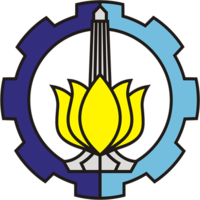- » Focus and Scope
- » Section Policies
- » Peer Review Process
- » Open Access Policy
- » Archiving
- » Publication Ethics
Focus and Scope
We welcome contributions from all areas of development studies including Economics, Environment, Health, Gender, Education, Culture and Society, Governance and Human Rights, and Conflict and Disaster. However, we require that papers are written in a way that is accessible to our diverse audience of students, scholars, and practitioners. Use of disciplinary jargon is therefore discouraged. Papers that use econometric evidence should do so sparingly and ensure the results are clearly explained for the Journal’s interdisciplinary audience. We also welcome short, insightful articles concerning current development practice, policies or teaching, or which open dialogue on questions raised in earlier issues of the IJDS.
All research articles in this journal have undergone rigorous peer review, based on initial editor screening and double-anonymous peer reviewSection Policies
Articles
Peer Review Process
This is high quality journal as it is well reviewed and assured by Proffesors specifying on related areas of the studies. In addition, the Proffesors are invited from all reputable universities from both Indonesia and abroad with blind review process.
Open Access Policy
This journal provides immediate open access to its content on the principle that making research freely available to the public supports a greater global exchange of knowledge.
Archiving
This journal utilizes the LOCKSS system to create a distributed archiving system among participating libraries and permits those libraries to create permanent archives of the journal for purposes of preservation and restoration. More...
Publication Ethics
The decision to which articles should be published fully depends on the editorial board’s decision. It based on requirements (originality, novelty, sociological and humanities perspectives) that have to be on the article at JSH.
Authors:
- Authors should adhere to publication requirements and author guidelines.
- Authors must ensure that the manuscript is original, free of plagiarism.
- The author should present their manuscript clearly, honestly, and without fabrication, falsification or inappropriate data manipulation.
- The manuscript has not been published elsewhere and does not submit to other journals during the review process.
- Authors should strive to describe their methods clearly and unambiguously so that their finding can be confirmed by others.
- The research work in order to write the manuscript should have conducted in an ethical and responsible manner and should comply with all relevant legislation.
- Authors should take responsibility for submitted and published work.
- The authorship of the manuscript should accurately reflect individual contributions to the work and its reporting.
- Funding sources and relevant conflicts of interest should be disclosed.
Reviewers:
- Reviewers only agree to review manuscripts for which they have the subject expertise required to carry out a proper assessment and which they can assess in a timely manner.
- Peer review assists the editor in making editorial decisions and through the editorial communications with the author may also assist the author in improving the paper.
- Any selected referee who feels unqualified to review the research reported in a manuscript or knows that its prompt review will be impossible should notify the editor and excuse himself from the review process.
- Reviews should be conducted objectively. Personal criticism of the author is inappropriate. Referees should express their views clearly with supporting arguments.
- Any manuscripts received for review must be treated as confidential documents. They must not be shown to or discussed with others except as authorized by the editor.
- Privileged information or ideas obtained through peer review must be kept confidential and not used for personal advantage. Reviewers should not consider manuscripts in which they have conflicts of interest resulting from competitive, collaborative, or other relationships or connections with any of the authors, companies, or institutions connected to the papers.
- Reviewers should identify relevant published work that has not been cited by the authors. Any statement that an observation, derivation, or argument had been previously reported should be accompanied by the relevant citation. A reviewer should also call to the editor's attention any substantial similarity or overlap between the manuscript under consideration and any other published paper of which they have personal knowledge
Editors:
- Each editor must ensure that each manuscript initially evaluated by the editor for originality, making use of appropriate software to do so.
- Editors can accept, decline/reject, resubmit for review or request for revision of the manuscript based on requirement before it hands over to peer reviewers.
- Editor forwarded the manuscript to blind peer reviewer who will make a recommendation to accept, reject, or modify the manuscript.
- The editor must ensure that each manuscript reviewed for its intellectual content without regard to sex, gender, race, religion, citizenship, etc. of the authors.
- The editor must ensure that information regarding manuscripts submitted by the authors kept confidential.
- An editor will not use unpublished materials disclosed in a submitted manuscript for his/her own research without the written consent of the author.
